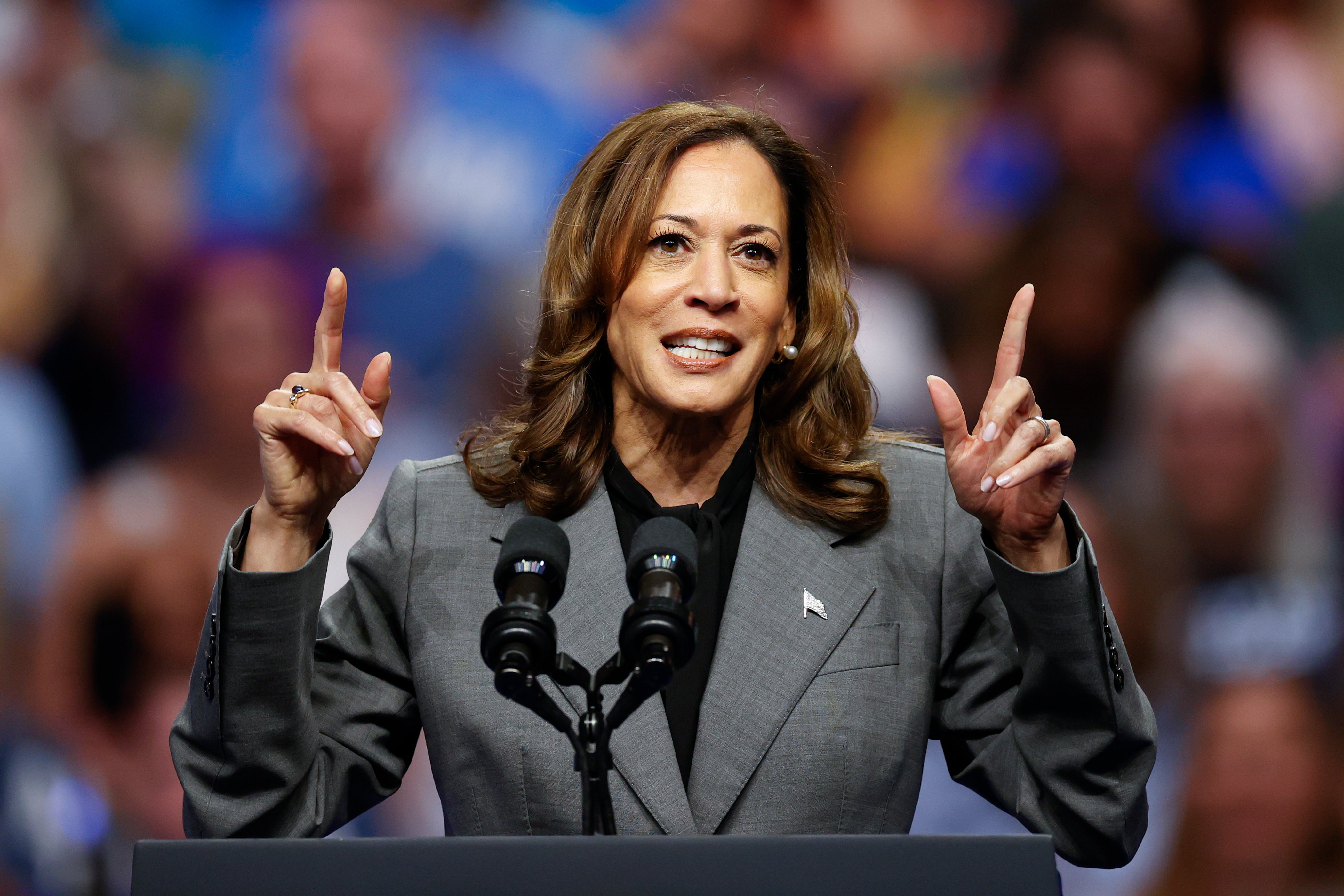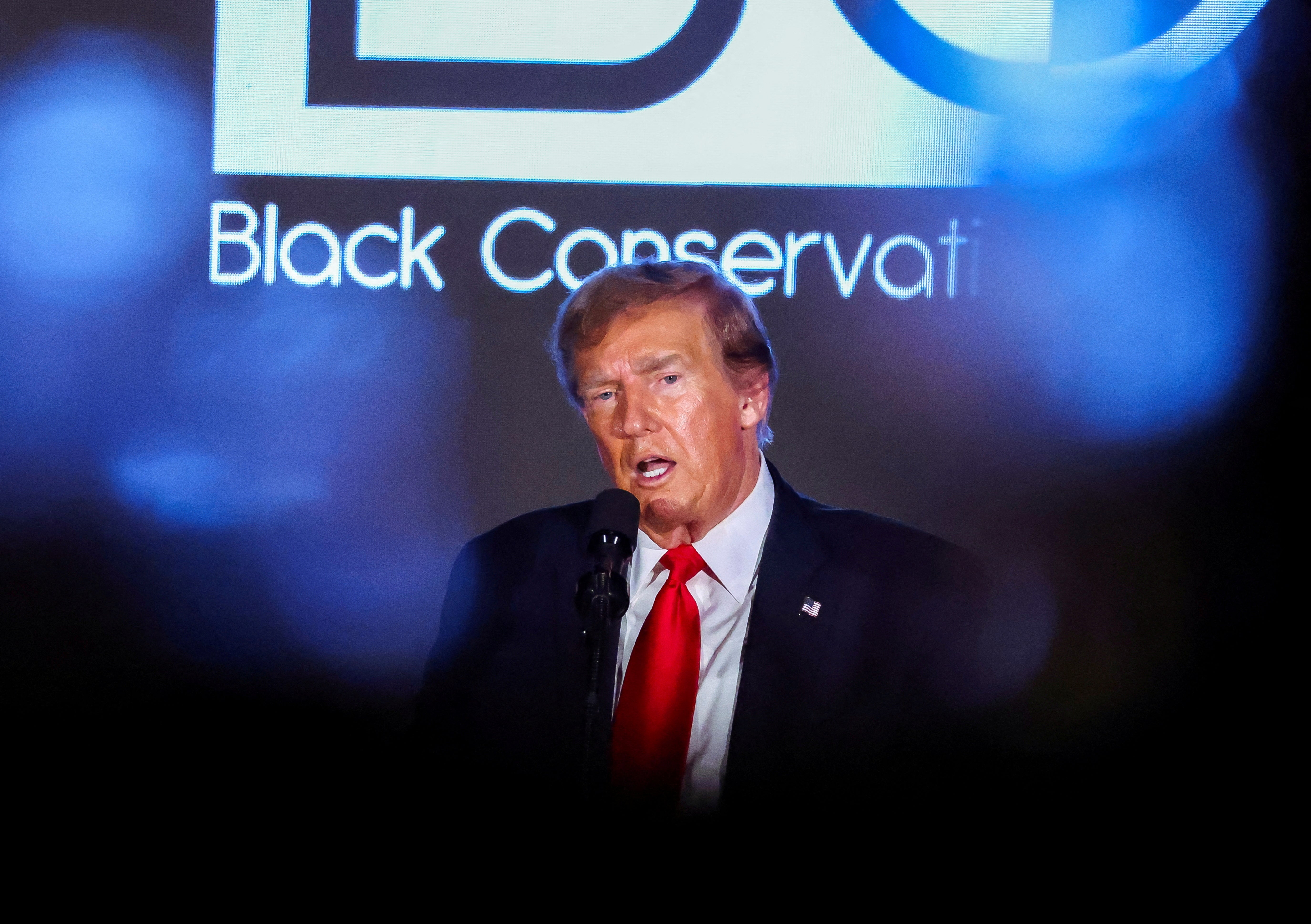‘She’s not Black’: Janet Jackson makes shocking comments about Kamala Harris’s heritage
Singer echoed false claims made by Donald Trump
Your support helps us to tell the story
From reproductive rights to climate change to Big Tech, The Independent is on the ground when the story is developing. Whether it's investigating the financials of Elon Musk's pro-Trump PAC or producing our latest documentary, 'The A Word', which shines a light on the American women fighting for reproductive rights, we know how important it is to parse out the facts from the messaging.
At such a critical moment in US history, we need reporters on the ground. Your donation allows us to keep sending journalists to speak to both sides of the story.
The Independent is trusted by Americans across the entire political spectrum. And unlike many other quality news outlets, we choose not to lock Americans out of our reporting and analysis with paywalls. We believe quality journalism should be available to everyone, paid for by those who can afford it.
Your support makes all the difference.Janet Jackson has falsely claimed that Kamala Harris is not Black and has a white father, echoing words from Harris’s electoral opponent Donald Trump.
The singer, 58, whose brother Tito passed away aged 70 last week, made the surprising comments about the vice-president when asked how she felt about the US having its first female Black president.
In response, Jackson called into question Harris’s heritage, evoking comments questioning the Democratic candidate’s race previously made by Trump in July.
The “All for You” singer claimed: “She’s not Black. That’s what I heard. That she’s Indian. Her father’s white. That’s what I was told.”
Jackson then admitted she hadn’t “watched the news in a few days” but was told somebody had “discovered” Harris’ father “was white”.
Harris is both Black and Indian. She was born to Shyamala Gopalan, an Indian cancer researcher and Donald Harris, a Black economics professor from Jamaica in 1964.
Gopalan died of cancer aged 70 in 2009. Meanwhile, Donald Harris, 86, is a professor emeritus of economics at Stanford University.
Jackson’s comments echo those made by Trump during a speech at the National Association of Black Journalists’ convention in Chicago in July.

The former president claimed: “[Harris] was always of Indian heritage, and she was only promoting Indian heritage. I didn’t know she was Black until a number of years ago, when she happened to turn Black, and now she wants to be known as Black.”
He questioned: “So I don’t know, is she Indian or is she Black?”
Trump added: “I respect either one, but she obviously doesn’t, because she was Indian all the way, and then all of a sudden she made a turn and she went – she became a Black person. I think somebody should look into that too.”

Harris has spoken openly about how she grew up appreciating both of her cultures. She attended Howard University, a historically Black college in Washington, DC, and is a member of Alpha Kappa Alpha, one of the first Black sororities in the nation.
In 2021, she recalled her father taking her and her sister to see Bob Marley and the Wailers in 1978 – her first concert ever. “We sat up top in the back of the theater and, as I watched the performance, I was in complete awe,” Harris told the Washington Post at the time. “To this day, I know the lyrics to nearly every Bob Marley song.
“My father, like so many Jamaicans, has immense pride in our Jamaican heritage and instilled that same pride in my sister and me,” Harris told the outlet. “We love Jamaica. He taught us the history of where we’re from, the struggles and beauty of the Jamaican people, and the richness of the culture.”

Harris has also emphasised the influence of her mother in her life. She wrote in her memoir, The Truths We Hold, about how her mother cooked her daughters Indian food, gave them Indian jewellery and took them on visits to India, where she spent time with her grandfather.
Harris described her grandfather in a 2009 interview as “one of the most influential people in my life” as well as “one of the original Independence fighters in India”.
In her memoir, Harris begins by explaining the meaning behind her first name. “It means ‘lotus flower,’ which is a symbol of significance in Indian culture,” she says.
“A lotus grows underwater, its flower rising above the surface while its roots are planted firmly in the river bottom.”
Join our commenting forum
Join thought-provoking conversations, follow other Independent readers and see their replies
Comments